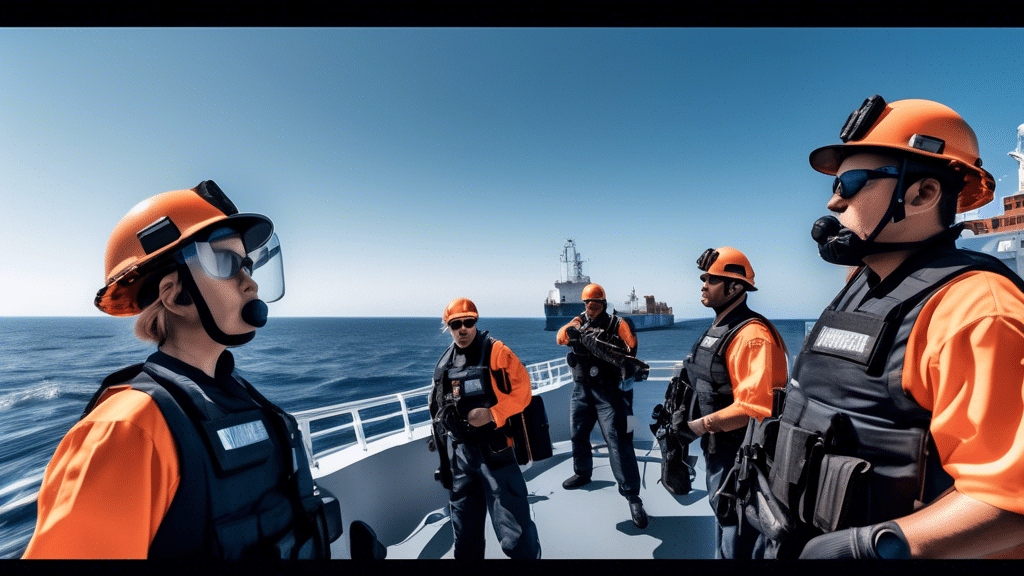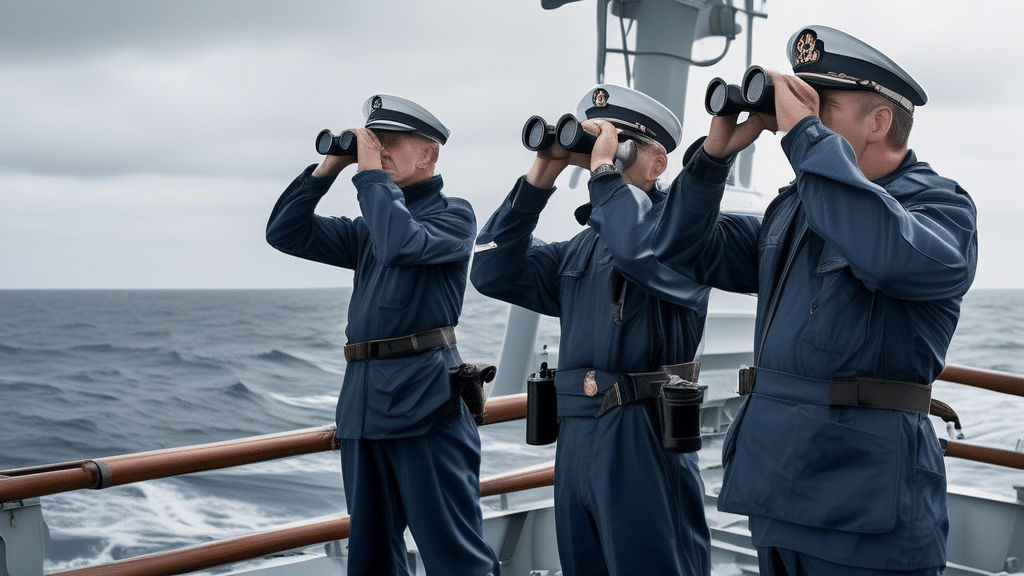Somalia’s strategic location along the Horn of Africa, encompassing some of the most pivotal maritime routes, is both a blessing and a curse. For centuries, these waters have been the lifeblood of regional commerce and transport. However, the modern era has seen the emergence of piracy as a daunting threat, one deeply rooted in a complex web of historical, economic, and environmental issues. Understanding the rise of modern piracy in Somali waters necessitates delving into the country’s tumultuous geopolitical history that has left maritime security in shambles and examining how chronic economic hardships and widespread unemployment have driven many to desperate measures. Additionally, illegal, unreported, and unregulated (IUU) fishing has not only devastated Somali coastal communities but also exacerbated the conditions that lead to piracy. This environmental exploitation, coupled with significant shortcomings in maritime governance and the inefficacies of international aid efforts, paints a comprehensive picture of the challenges at sea. By unpacking these contributing factors, we can uncover the intricate causes that perpetuate the cycle of piracy along Somalia’s historical waters.
Historical Context and Economic Factors Contributing to Modern Piracy in Somalia
Overview of Somalia’s Geopolitical History and Its Impact on Maritime Security
Somalia, located on the Horn of Africa, has a complex geopolitical history that has significantly shaped its modern maritime security landscape. Historically, the strategic position of Somalia made it a crucial point for trade routes linking the Middle East, Africa, and Asia. However, the colonial era disrupted traditional structures, leading to arbitrary divisions and the imposition of foreign control. Post-independence in 1960 saw the unification of British Somaliland and Italian Somaliland, but the ensuing years were marked by political instability.
The overthrow of Siad Barre’s regime in 1991 led to an extended period of civil war and the collapse of central governance. This breakdown created a power vacuum and allowed warlords and armed militias to exert control over various regions, including the coastal areas. The absence of a central authority adversely impacted Somalia’s maritime security. The once-thriving port cities became battlegrounds, and the lack of effective governance led to increased vulnerability to piracy.
During this period of turmoil, the Somali coastline, which spans approximately 3,300 kilometers, became lawless. The lack of a functioning navy and coast guard allowed local fishermen and coastal communities to fend off illegal fishing vessels and waste dumpers on their own. These activities blurred the lines between legitimate self-defense and piracy. The international community’s focus on the mainland conflict inadvertently neglected the growing threat at sea.
The Role of Economic Hardships and Unemployment in Fueling Piracy Activities
The socio-economic conditions in Somalia further exacerbated the rise of modern piracy. Decades of conflict left the country with a shattered economy, widespread poverty, and limited employment opportunities. The destruction of infrastructure, coupled with ongoing violence, deterred investment and hindered economic development. As a result, many Somalis were left without viable means to sustain themselves and their families.
Agricultural activities, which traditionally supported a significant portion of the population, were disrupted by conflict and environmental challenges. Additionally, the livestock trade, a critical sector in Somalia, faced obstacles due to recurrent droughts and disease outbreaks. In such a context, the lack of economic diversification pushed many individuals towards the coastal areas where the possibility of making quick money through piracy became an attractive option.
Young men, in particular, were susceptible to the lure of piracy. With limited job prospects and a dearth of educational opportunities, piracy offered an alternative means of income. The payments from ransom demands became a lucrative source of funds for many impoverished communities. The economic allure, coupled with the lack of legal repercussions due to weak judicial systems, made piracy a viable livelihood for many.
The international perception of Somali pirates as Robin Hood figures, defending their waters from illegal fishing and toxic waste dumping, initially garnered some local sympathy. However, the situation quickly evolved into organized criminal enterprises with sophisticated networks. The high-profile hijackings of commercial vessels and yachts brought millions of dollars in ransom payments, further entrenching piracy as an economic activity.
Moreover, the financial gain from piracy often had far-reaching effects on community dynamics. The influx of money led to changes in social structures, with pirates and their associates gaining influence and power. This increased the appeal of piracy among other community members. These socio-economic transformations reinforced the cycle of piracy, making it a persistent issue despite international efforts to combat it.
In conclusion, understanding the historical and economic factors contributing to piracy in Somalia is crucial in addressing the root causes of this problem. The geopolitical history of Somalia and its impact on maritime security, coupled with the pervasive economic hardships and unemployment, created a fertile ground for piracy to flourish. Addressing these underlying issues requires a comprehensive approach that encompasses political stability, economic development, and effective maritime governance.
https://www.virtualmaritime.academy/vma-courses/
The Effects of Illegal, Unreported, and Unregulated Fishing on Somali Coastal Communities
The shores of Somalia, rich in marine resources, have historically provided sustenance and livelihood for numerous coastal communities. However, in recent decades, the influx of illegal, unreported, and unregulated (IUU) fishing has wreaked havoc on these communities. IUU fishing depletes fish stocks, endangers marine biodiversity, and strips local fishermen of their primary source of income. With the breakdown of state governance and minimal enforcement of maritime laws, foreign vessels have exploited these waters with relative impunity.
Many international fishing fleets target high-demand, lucrative species, contributing to overfishing and the rapid decline of fish populations. This environmental degradation has a direct economic impact on the Somali coastal populace. Traditional fishing methods practiced by local fishermen are rendered ineffective when faced with the advanced technology of foreign vessels. Consequently, many Somali fishermen find themselves unable to compete, driving them toward desperate measures for income.
The direct link between IUU fishing and piracy cannot be overstated. Deprived of their traditional livelihoods, some Somali fishermen turn to piracy as a means of survival. The prospect of extorting ransoms from hijacked vessels becomes a more attractive, albeit illicit, alternative to dying industries. Organized pirate groups also manipulate and recruit disenfranchised fishermen, offering them a way to support their families amidst economic despair.
Additionally, the depletion of fish stocks affects food security in coastal regions. Fish constitutes a major component of the local diet, and its scarcity exacerbates the already dire humanitarian conditions. Unregulated trawling and destructive fishing practices also damage marine habitats, making it challenging for ecosystems to recover and for fish populations to replenish, ensuring that the adverse effects persist long-term.
The international community has taken some steps to curb IUU fishing through various agreements and regulatory frameworks. However, enforcement remains problematically weak, especially in Somali waters where political instability complicates oversight. Effective measures require significant collaboration and resource investment to monitor and protect these waters, empowering local communities to regain control over their marine resources and thus reducing the incentives for piracy.
Deficiencies in Maritime Governance and International Aid Efforts in Combating Piracy
Maritime governance in Somalia faces severe deficiencies, greatly hampering efforts to combat piracy and regulate the use of its waters. The collapse of the central government in the early 1990s left a void in law enforcement, allowing illegal activities to prosper unchecked. Regional administrations that emerged in the power vacuum lack the capacity and resources to enforce maritime laws, patrol their waters effectively, or maintain a robust judicial system capable of prosecuting crimes.
International aid and intervention efforts have attempted to address piracy and enhance maritime security in Somali waters. However, these efforts have often been fragmented and insufficiently coordinated. The establishment of maritime security strategies, such as the Contact Group on Piracy off the Coast of Somalia (CGPCS) and various naval coalitions, have achieved some success in reducing piracy incidents. Nonetheless, without addressing the root causes and enhancing local governance structures, these measures provide only temporary relief.
Crucially, for maritime governance to be effective, there must be substantial investment in building institutional capacity. This includes training for local coastguards, provision of necessary equipment, and development of legal frameworks aligned with international standards. Capacity building efforts should focus not only on enforcement but also on preventive measures, such as supporting sustainable fishing practices and economic development programs that reduce dependency on illicit activities.
Further complicating the situation is the inadequate allocation and management of international aid. Assistance programs sometimes suffer from misallocation of funds, lack of accountability, and failure to align with the needs and priorities of local communities. Effective aid requires a mutual cooperation model where international bodies work closely with Somali authorities and community leaders to ensure that interventions are relevant, culturally sensitive, and sustainable in the long run.
Moreover, addressing the governance issues also involves cleaning up corruption, which undermines the effectiveness of any anti-piracy effort. Corruption among officials can lead to loopholes that pirates exploit, and it erodes trust in the governmental and judicial systems. Implementing anti-corruption measures and promoting transparency are essential components of a successful strategy against maritime crimes.
In summary, while external interventions have played a role in mitigating piracy, sustainable solutions lie in fortified maritime governance and effective international cooperation. The international community must continue to support Somali efforts in establishing robust maritime laws, enhancing local enforcement capabilities, and ensuring that aid programs are well-managed and impactful. Only through a comprehensive and collaborative approach can the cycle of piracy and economic desperation be broken, paving the way for stability and prosperity in Somalia’s coastal regions.
The phenomenon of modern piracy in Somalia is deeply rooted in the nation’s complex geopolitical history and its persistent economic challenges. Somalia’s protracted civil conflict and the collapse of its central government in the early 1990s created a power vacuum that severely undermined maritime security. This instability, coupled with widespread poverty and high unemployment rates, created fertile ground for piracy as a means of livelihood for many desperate Somalis. The dire economic conditions faced by coastal communities forced individuals to turn to piracy to support themselves and their families, highlighting how economic disparity directly contributes to criminal activities at sea.
The environmental degradation caused by illegal, unreported, and unregulated (IUU) fishing further exacerbates the situation, as foreign vessels deplete local fish stocks, leaving Somali fishermen with few options. This unchecked exploitation not only devastates the marine ecosystem but also strips away the primary source of income for many coastal inhabitants. As traditional fishing becomes less viable, frustrated and impoverished communities are driven towards piracy as an alternative way to survive. The lack of effective maritime governance and regulatory frameworks means that both IUU fishing and piracy continue largely unchallenged, perpetuating the cycle of lawlessness and instability in the region.
Despite considerable international aid efforts aimed at curbing piracy, the absence of sustained and comprehensive measures to address the underlying causes hampers meaningful progress. Initiatives often fail to fully consider the socio-economic and environmental context, resulting in temporary fixes rather than long-term solutions. To effectively combat modern piracy in Somalia, it is crucial to develop multifaceted strategies that not only enhance maritime security but also promote economic development, ensure sustainable fishing practices, and strengthen governmental institutions. Addressing these root causes holistically will be key to restoring stability and fostering prosperity in Somalia’s coastal regions, ultimately reducing the lure of piracy.















